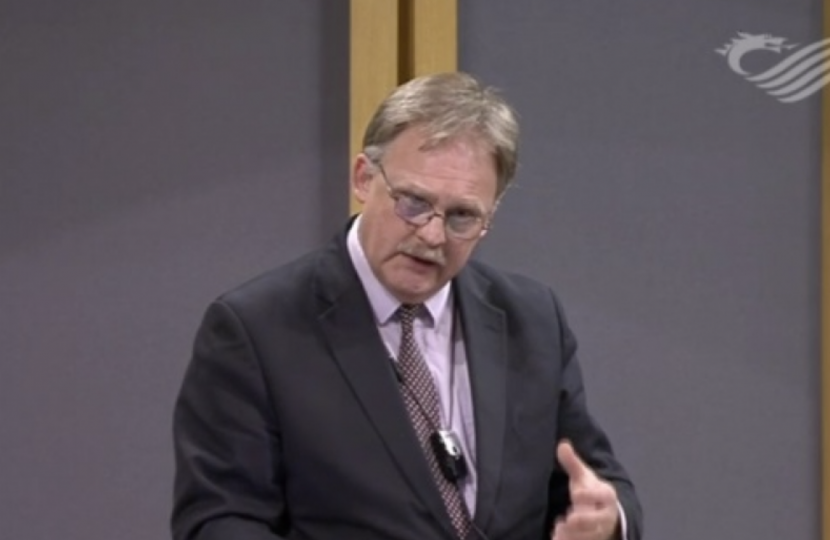
Speaking in today’s meeting of the Welsh Parliament, Shadow Minister for Social Justice and North Wales MS Mark Isherwood called on the Welsh Government to invest the additional billions it has received from the UK Government to deal with Covid-19 in “lifting people out of poverty, preventing them from spending a life dependent on welfare.”
Taking part in the debate on Universal Credit, Mr Isherwood highlighted that by June this year, the Welsh Government had received an additional £8.6 billion from the UK Government since the start of the pandemic, and said an Audit Wales report published this week states “it allocated £5.1 billion to the COVID-19 response in 2020-21, and the Welsh Government has at least an additional £2.6 billion available in 2021-22”.
He said:
“This money needs to be invested in building back better, lifting people out of poverty, preventing them from spending a life dependent on welfare, whilst maintaining flexibility around the Discretionary Assistance Fund.”
Earlier in his speech, Mr Isherwood referred to the fact that the Joseph Rowntree Foundation reported last year that Wales has retained the highest poverty rate of all the UK nations throughout devolution since 1999, and has the lowest GVA prosperity levels of any UK nation.
He added:
“Further, their 'Poverty in Wales 2020' report last November found that Wales still has lower pay for people in every sector than the rest of the UK and that, even before coronavirus, almost a quarter of people in Wales were in poverty, living precarious and insecure lives.
“And as the Bevan Foundation also stated, poverty was a significant problem in Wales long before the arrival of COVID-19. This is despite the billions received and spent by successive Welsh Governments, which was supposed to tackle the prosperity gap.”
In response to calls for the temporary Universal Credit uplift to be made permanent, he said:
“As with all the extra support provided by the UK Government in response to COVID-19, this was always time-limited, although the core benefit remained protected. This extension, plus a one-off payment of £500 to working tax credit claimants also announced, were expected to cost £3 billion. The UK Chancellor also announced that Universal Credit advances would not need to be repaid for 24 months from April 2021, a 12-month extension, that the maximum Universal Credit reduction rate would fall to 25 per cent from April 2021, and that the ‘higher surplus earnings threshold’ for Universal Credit would remain at £2,500 until April 2022.
“As we faced one of the greatest economic and social challenges in our history, the UK Government delivered a £407 billion support package, including a £9 billion injection into our welfare system. But now, as we move to the next phase of our recovery, it is right to prioritise supporting more people in work and to progress in work. The support for families, jobs, and businesses provided by the UK Government over this year and last includes an additional £740 million to the Welsh Government for 2021-22 through the Barnett Formula, plus a further £1.4 Billion the Devolved Governments will receive outside the Barnett Formula.”
He added:
“Universal credit provides a safety net, but is not designed to trap people in welfare. Unfortunately, however, as our amendment 2 states, poverty levels in Wales are higher than in other parts of the UK due to the failure of successive Welsh Governments, responsible for measures to promote prosperity and tackle poverty in Wales for over 22 years.”

